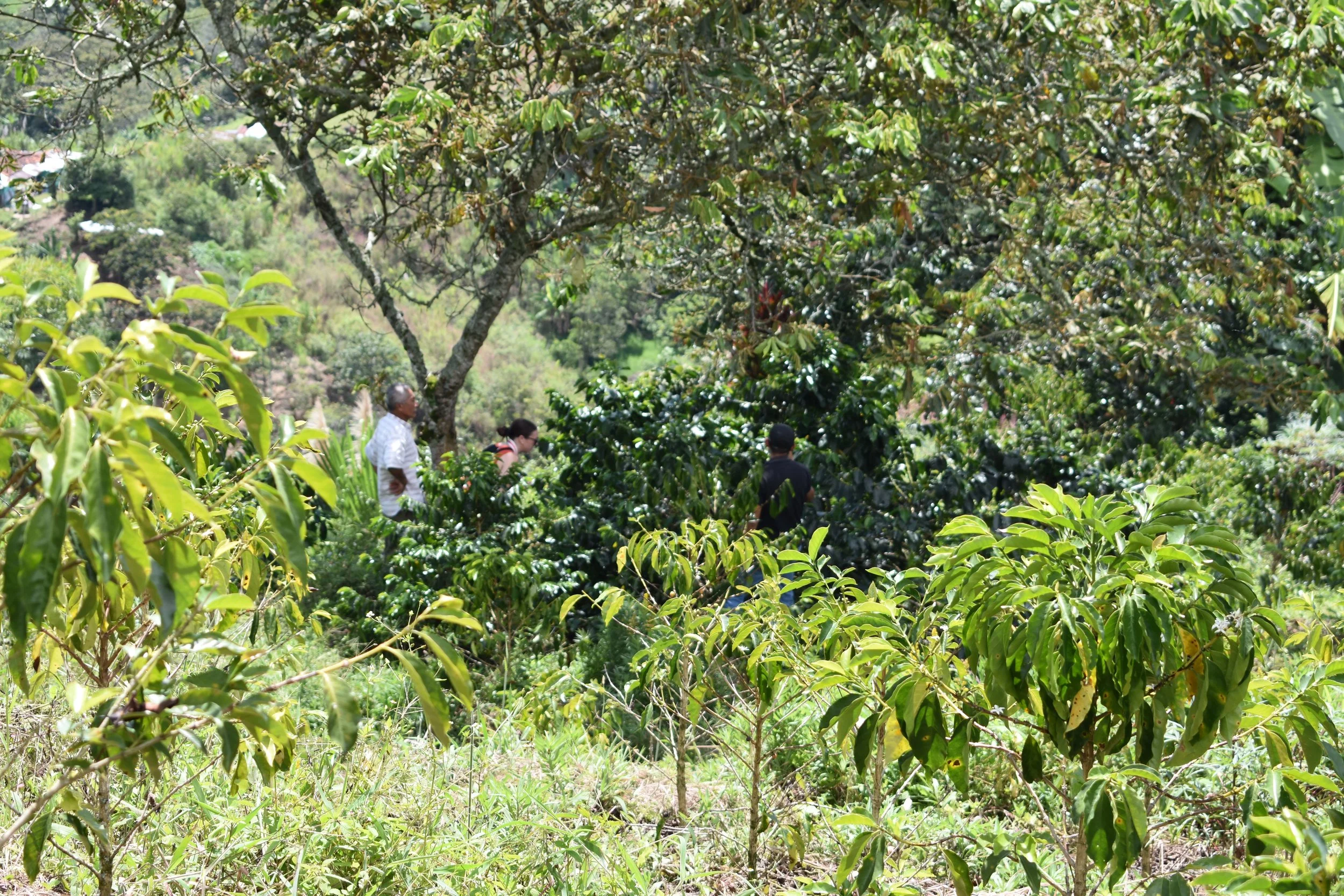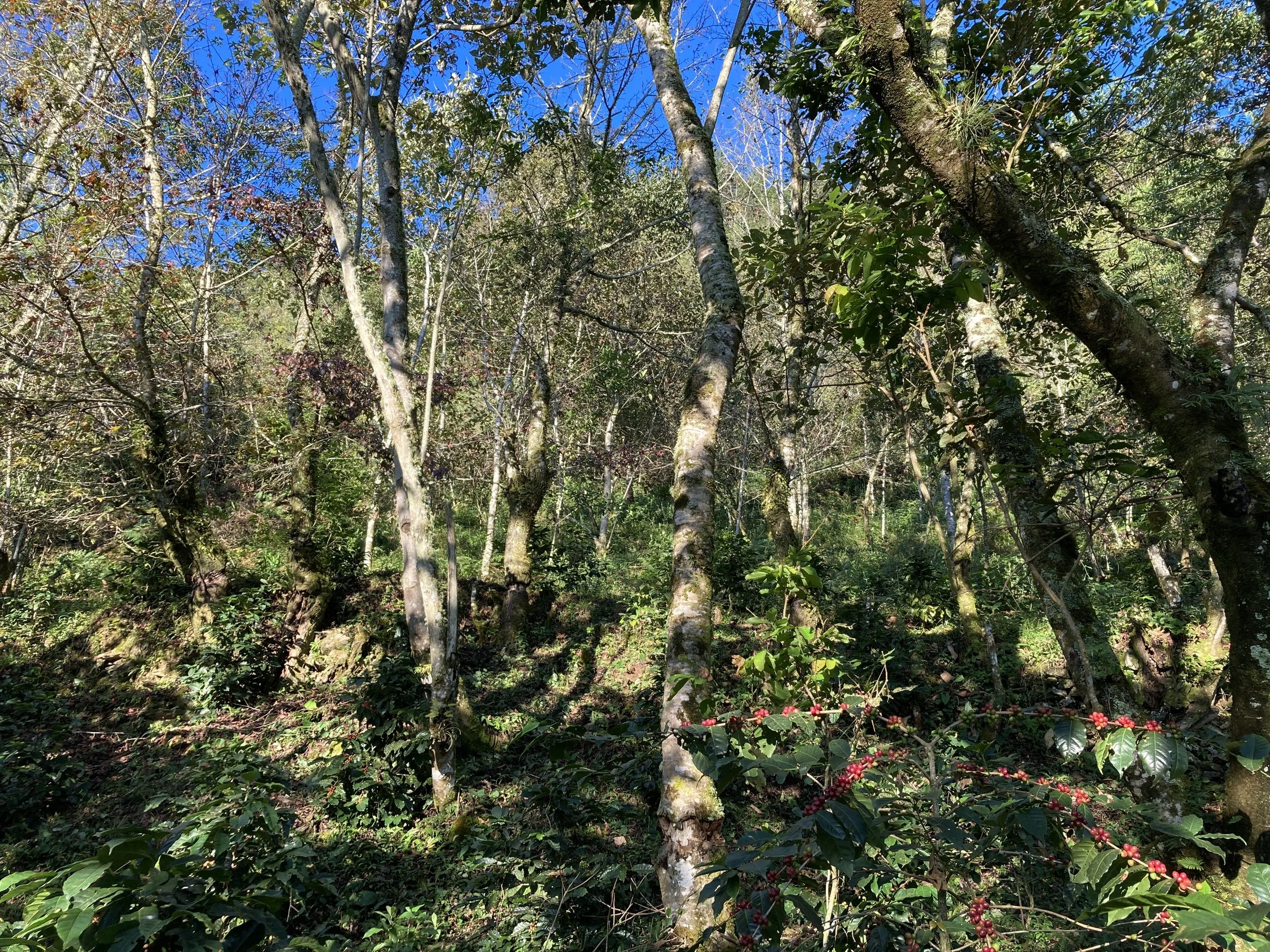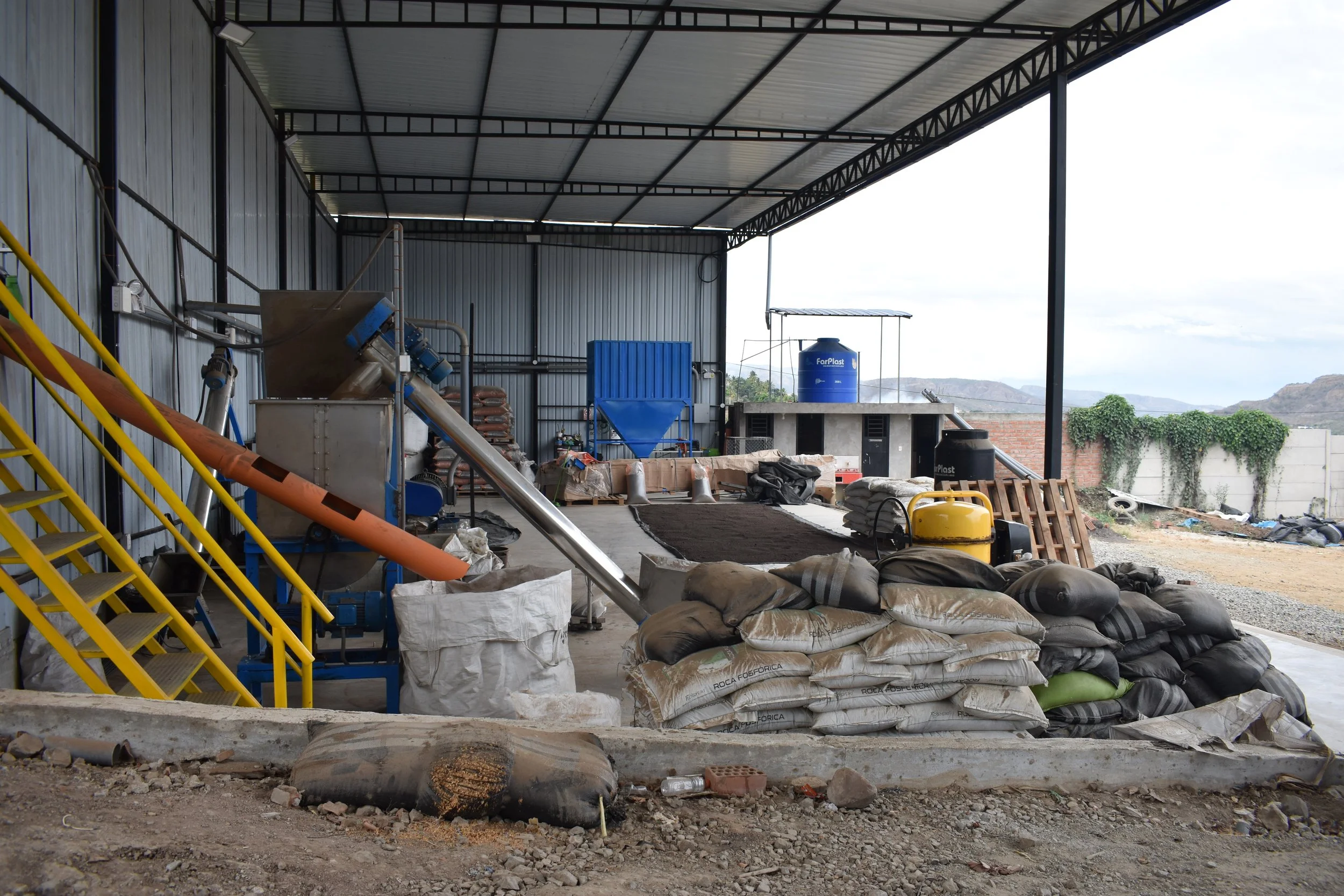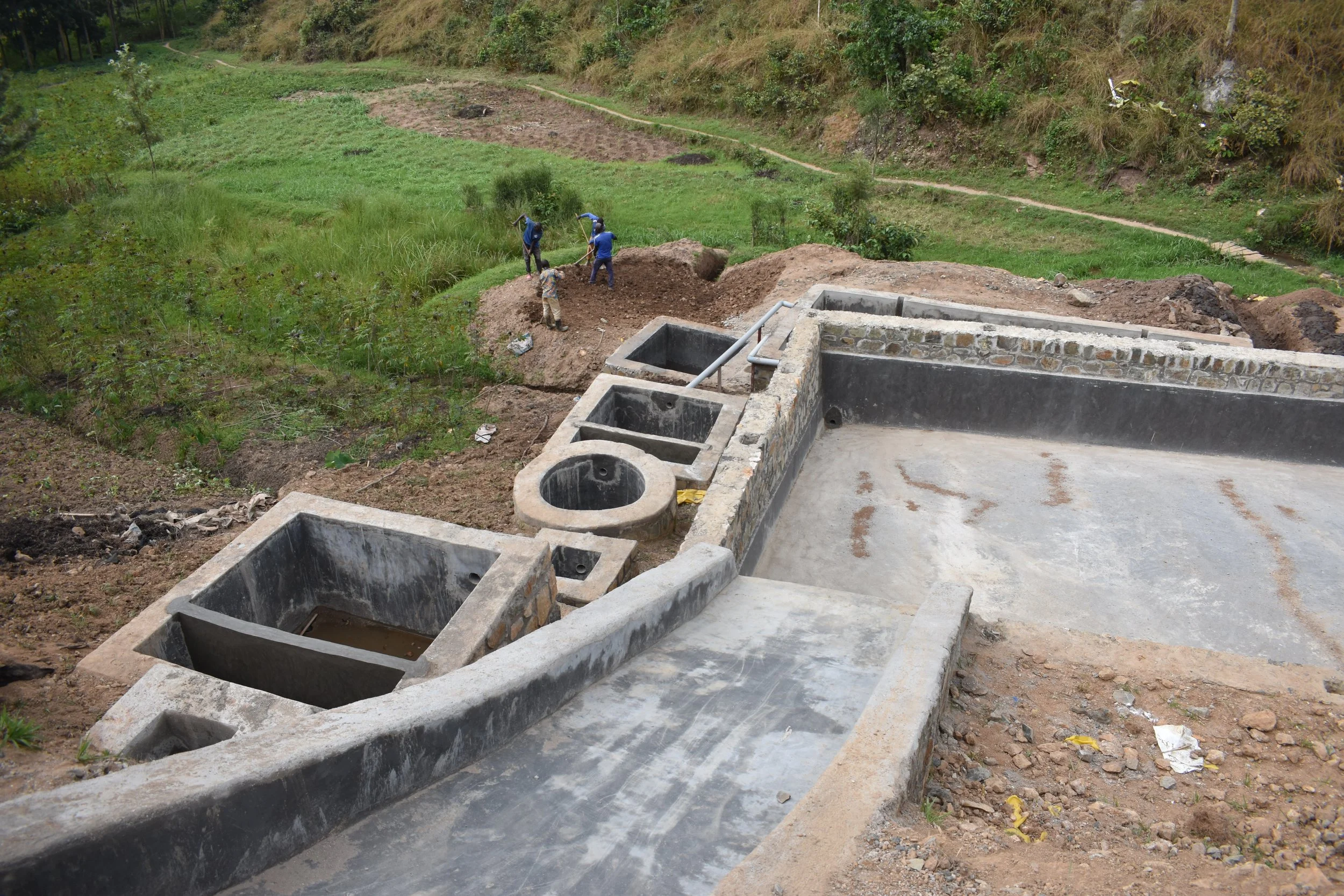What’s Our Approach and Why
Every so often we are asked whether we offer organic certified coffees. And the short answer is, no, we don’t. This is certainly not because we don’t believe in organic and regenerative farming practices, we absolutely do! Better agricultural practices are of paramount importance when it comes to protecting soil, waterways, ecosystems and biodiversity and ultimately ensuring it is possible to cultivate coffee in the future. However, from a number of years travelling to producing countries, meeting with coffee growers and gaining a better understanding of our supply chains, we learn, time and time again, that focusing on organic certifications is not the best way to have the holistic positive impact we seek for the communities whose coffees we purchase and the environment.
So what is the problem with organic (and other) certifications in coffees?
It is completely understandable that to a coffee drinker caring about the impacts of their cup on our environment, organic labelled coffee is an attractive promise. A third party verified stamp that their coffee has been produced without the use synthetic pesticides, fertilisers, or other chemicals in the soil. In theory, better for the planet, and a peace of mind for coffee drinkers.
But what are the costs and impacts of certifications on the farmers behind these coffees? And what are the alternatives?
While we appreciate the accountability certifications can provide, the strict (and in most cases buyer determined) compliance criteria, application process and ultimately the cost of certification is simply prohibitive, let alone a worthwhile investment, for many of the small-holder coffee farmers from whom we purchase the vast majority of our coffees.
It is important to acknowledge the reality of small-holder farmers, growing coffee (and often also other crops) on an average area of 3-5 hectares of land. It is these growers who are responsible for majority of global coffee production. Most of these producers and communities are based in rural areas of the global south using predominantly traditional and non-industrialised farming systems with far less access to resources compared to our standards in the global north. With market prices paid for coffee historically being low, many growers have struggled to sustain their livelihoods and the potential premiums of organic certified coffee seldom make the investment into the process of gaining the certification worthwhile.
This is not to say that producers don’t use farming practices that protect their soils and environment. They certainly do, mainly out of tradition, connection with their land and sometimes plain necessity due to lack of access or affordability of synthetic fertilisers and pesticides. In certain areas we buy from with more organised and developed coffee production systems like Colombia, Guatemala and Peru, growers will often use a combination of organic and inorganic fertiliser in order to ensure yields and in turn the viability of their farms and incomes for their families. And at the same time, other regenerative practices are often applied as default that actively improve soil health, sequester carbon and have the potential to mitigate the impacts of fertiliser use. In most cases, this is not because they seek certification but because of a fundamental belief in the need to protect their land.
Coffee plot of Don Isnardo in the San Lorenzo community in Caldas. Coffee plants are growing amid shade trees, the ground is covered various plants and organic matter to promote soil health.
What is it that we are doing to contribute to improving environmental sustainability within our supply chains?
Buying coffee from small-holder growers, often from indigenous communities, using organic practices by default and avoiding the use of pesticides
We purchase a significant portion of our coffee from indigenous communities using traditional, and in many cases regenerative farming methods, and protecting their waterways through the use of multi stage water treatment systems to clean water used in coffee processing, even on the smallest farms. Our House Espresso which is by far the highest volume coffee we purchase comes from the San Lorenzo area in Caldas. The whole township is an indigenous reserve with strong land stewardship. During our visits we have witnessed first hand, the care with which growers treat their land and the biodiversity present in the fields. Using cover crops and shade trees that naturally fix nitrogen in the soil, protecting natural water springs, recycling organic matter into compost and using septic systems to treat post-processing water are only a few examples of regenerative practices applied. Another, and perhaps the most holistically organic example of a coffee production system is that of El Zapoteco Cafe - one of our Community Espresso option. This community based in the highlands of Sierra Juarez of Oaxaca state Mexico - growing coffee in a fully shaded agro-forestry system with the use of solely organic inputs only, even though they don’t carry a certification.
In Africa, the two producing countries from where we purchase bigger volumes of coffee are Rwanda and Ethiopia. In both, coffee production is dominated by farmers with even smaller plots of land than is common in Latin America and processing happens at centralised washing stations. Farmers typically grow coffee as a cash crop on a small-holding alongside other subsistence crops and livestock and the use of any chemical input is even more limited due to prohibitive cost and inaccessibility. As a result, the vast majority of the coffees we carry from these regions are produced organically by default.
Full agroforestry system in Santo Domingo Cacalotepec - home of Cafe El Zapoteco - in Oaxaca, Mexico. Here coffee trees are growing under a full canopy. A fully organic production, non-certified. The issue here is low productivity due to lack of inputs and age of trees, leading to financially viability being compromised. This is something that is being adressed by our export partner Red Beetle.
Working with exporters who actively provide technical assistance in good agricultural practices and invest in research into and carrying out of effective solutions promoting environmental protection within their supply chains
All of the exporters we work with provide technical and other assistance to growers in their supply chains with the aim to promote good practices for yields and quality as well as natural preservation. Ultimately, taking a more holistic approach to sustainability considering all its three pillars - economic, social and environmental. Below are the example of how this work in the key origins we source from.
Our Colombian export partner Siruma (operating in joint venture with Falcon) has an incredibly well organised sustainability team with full-time agronomists in each region where they operate. Using their signature baseline research they are able to provide targeted support according to particular needs of each group/locality.
Similarly, Falcon have an experienced team based on the ground in Peru, where they’ve been recently conducting the coffee carbon project . Part of the findings (and this seems to ring true in many other instances researching the first crucial step toward soil protection) confirms the importance of soil analysis and improving growers’ access to and understanding of using correct kinds and amounts of fertilisers. This targeted and tailored fertiliser application has an immense potential to vastly reduce fertiliser inputs (both organic & inorganic) and their negative impacts without compromising yields and profitability.
Also in Peru, our new partner Finca Churupampa has been working on promoting regenerative farming practices within their grower network since their inceptions and recently set up their own organic fertiliser production plant. This way they can now purchase organic matter from their farmer network (diversifying their income streams) which is ground and combined with other essential nutrients and turned into organic fertiliser pellets ready to be applied in the fields. This fertiliser is then available to growers as a cheaper ad effective alternative to chemical fertiliser.
Finca Churupampa’s new organic fertiliser production facility.
Our key partner in Guatemala - Primavera Coffee - works with their network of growers engaging in a variety of natural protection projects including - water conservation, and recently also worm compost and biochar production, again ensuring producers’ economic sustainability isn’t compromised.
Our export/import partners’ sustainability efforts in Ethiopia are focused in other areas such as improving yields through rejuvenations as in the case of Falcon/Technoserve Stumping Project, and in the case of Ephtah coffee exporter, promoting better social equity through strengthening women’s participation and leadership. Both with proven secondary positive impacts towards environmental protection.
In Rwanda, alongside seedlings distribution to aid rejuvenation, Muraho Trading Company have recently launched a new pilot project - waste water treatment system. The purpose is two fold - to ensure the water contaminated by coffee processing is properly purified before re-entering the local waterways (such as the magnificent Lake Kivu) and to recycle coffee pulp (waste product from washed processing) into nutritious compost. The plan is for this pilot project to ultimately serve as the blueprint to be rolled across all of Muraho’s stations ensuring waterways protection as well as provision inexpensive organic fertiliser to local farmer families.
Muraho’s pilot water treatment system under construction in early 2024. Now complete and being rolled out across their washing stations.
Contributing to projects that promote environmental protection
As part of out commitment to donate 1% of our revenue we take part in World Coffee Research’s check-off programme, donating 5p/kg of green coffee we purchase through partnering importers. This helps fund WCR’s activities such as research into new climate resistant and resilient varieties requiring fewer agronomical inputs.
This year, we also further expanded our project contributions in San Lorenzo (our House Espresso coffee suppliers) Colombia in collaboration with our export partners Siruma. Alongside our donation to fund improved drying infrastructure, we also financed a pilot sustainability project building improved composting facilities. This has been identified by Siruma’s sustainability team as one of the needs in the area as growers generally compost or reuse their coffee cherry pulp but the lack of appropriate facilities to do this which leads to soil contamination by the run off juice. Initially we are helping to build 3x compost facilities Once complete, will evaluate the effectiveness of this and look into the possibility of expanding to further growers.
To conclude (and seriously well done if you’ve made it all the way here!), our point of view is that organic certifications seem to offer an unrealistic promise of achieved perfection. And what we find far more impactful is the application of a host of imperfect but tangible efforts taking into account specific local contexts, needs and resources, working towards a sustainable future in coffee.
Further reading resources:
Are certifications more of a barrier than good for producers? (A blog post by Raw Material, our import partner in Mexico and Rwanda)
https://www.rawmaterial.coffee/news-insights/are-certifications-more-of-a-barrier-than-a-good-for-coffee-producers
Primavera and their Sustainability Projects
https://www.primavera.coffee/projects
The Sustainability Framework
https://www.globalcoffeeplatform.org/our-work/tools/the-sustainability-framework/
Falcon’s The Coffee Carbon Project led by Dr Mandi Caudill
https://www.falconcoffees.com/the-coffee-carbon-project-part-1/
https://www.falconcoffees.com/the-coffee-carbon-project-part-4-2/
Indigenous Peoples as Stewards of our Environment - an interesting opinion piece by Dr Agnes Kalibata - special envoy of the UN secretary-general for the UN Food Systems Summit
https://www.independent.co.uk/climate-change/opinion/cop26-farmers-food-indigenous-peoples-climate-crisis-b1951423.html?r=9522\
What climate and environmental benefits of regenerative agriculture practices? an evidence review
https://iopscience.iop.org/article/10.1088/2515-7620/acd6dc/meta






